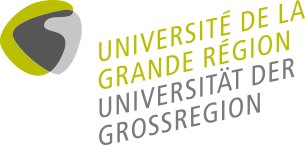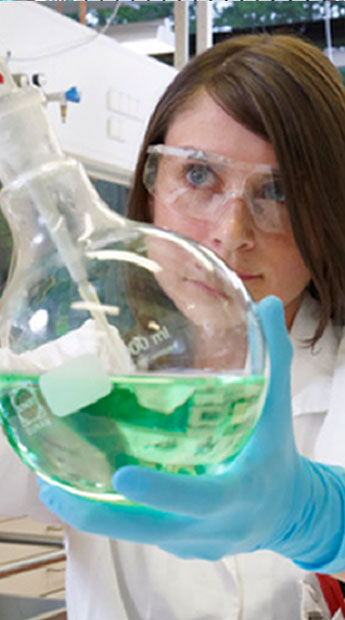UniGR-Leuchtturmbereich Biomedizin
Der Leuchtturmbereich Biomedizin ist ein besonders vielfältiger Bereich. Er vereint Forschende unterschiedlichster Disziplinen aus den Biowissenschaften und der Medizin, wie z.B. Bioinformatik, Systembiologie, Molekular- und Zellbiologie, Psychologie, Pharmazie oder Epigenetik.
So entstehen in der Großregion interdisziplinäre Forschungsnetzwerke, in denen gemeinsam im Rahmen von grenzüberschreitenden Projekten Krankheitsursachen erforscht und Wege zur Heilung gesucht werden sollen.
Zu folgenden Themen haben sich bereits Forschernetzwerke gebildet:
(Inhalte auf Englisch, außer Cartilage und Redox Biology)
Big Data - Challenges and Opportunities
A one-day UniGR workshop, co-organised with the Luxembourg Centre for Systems Biomedicine (LCSB), took place on December 6th 2013 in Luxembourg.
While it is widely recognized that we need more data-driven decision-making processes, there is still a wide gap between the current situation and the potential and realization of the notion “Big Data”. In the life sciences we are at the border of having the data rolling in but not having the machinery and pipelines in place to use them in an efficient and innovative way.
Joint efforts and discussions among different academic groups – biologists, computer scientists, bioinformatics, mathematicians and others - are needed to deal with challenging data management and analysis demands.
For that reason, UniGR brought together researchers from the Greater Region.
Cancerology & Microbiome
In the last ten years, new knowledge about the human microbiome has created a paradigm shift in our view of human biology and human disease. New scientific technologies like DNA sequence analysis have revealed a rich and complex community of microorganisms which are resident in and on the human body. It is becoming increasingly apparent that these microbial communities, which number in the trillions and represent thousands of bacterial, viral and fungal species, do not cause disease but, in fact, are required for normal human development and for lifelong health.
Within this group of researchers, the link between tumorgenesis and human microbiome is investigated with regard to cancer prevention and cancer therapy efficacy.
Contact: Prof. Dr. Jochen Schneider, Luxembourg Centre for Systems Biomedicine, University of Luxembourg
Cartilage
Das „Knorpelnetz der Großregion“ geht auf eine UniGR-Pilotaktivität zurück, die von Prof. Madry von der Universität des Saarlandes initiiert wurde. In diesem Netzwerk sind alle relevanten Knorpelforscher_innen der Region vereint, von Medizinern über Molekularbiologen und Ingenieure bis zu Pathologen. Die Partner aus Lothringen, Luxemburg, dem Saarland und Wallonien repräsentieren dabei nicht nur die UniGR-Partneruniversitäten, sondern auch Kliniken und Forschungsinstitute. Sie tauschen sich regelmäßig sowohl bilateral als auch mit allen Partnern aus, sei es im Rahmen von Gastvorträgen oder von großen Kongressen. Davon profitieren zum einen die Forscher*innen, indem sie gemeinsame Publikationen einreichen und gemeinsame Projektanträge stellen, zum anderen aber auch Studierende und Promovierende, die frühzeitig international Kontakte knüpfen können.
Das Knorpelnetz wurde 2012 mit dem ersten Preis des Interregionalen Wissenschaftspreises ausgezeichnet, der von der Arbeitsgruppe „Hochschulwesen und Forschung“ der Großregion ausgerichtet wird.
Auf der Homepage von Prof. Madry finden Sie weitere Informationen zu Aktivitäten und Mitgliedern des Knorpelnetzes der Großregion.
Modulation of eating behaviour through deep brain stimulation (MIB-DBS)
Eating disorders such as anorexia nervosa, bulimia nervosa and binge eating disorder and disordered eating behaviours associated with morbid obesity show a rise in prevalence across much of the industrialised countries. While efforts continue to better understand the processes underlying these conditions, their successful treatment often represents a real challenge.
More importantly, eating disorders and their associated conditions affect an increasing number of children and adolescents. Conventional treatments comprise cognitive behavioural therapy (CBT), family based treatments and pharmacotherapy. Although these approaches produce better outcomes than previous treatments, their still limited success has encouraged neuro-cognitive and physiological approaches, e.g. vagus nerve stimulation, transcranial magnetic stimulation, transcranial direct stimulation as well as deep brain stimulation (DBS). Given their relative novelty, there are few systematic studies that test the underlying mechanism (e.g. the optimal location for the intervention) of these approaches, possible ways of optimizing these treatments (e.g. through neuro-monitoring etc.) and their long-term consequences.
A workshop was organised on the initiative of Jochen Schneider (Saarland University & University of Luxembourg), Claus Vögele (University of Luxembourg / INSIDE Institute for Health and Behaviour) and Frank Hertel (Centre hospitalier de Luxembourg), on 27 February 2015.
Psychobiology & Health
Following three workshops on "Psychobiology & Health" organised in 2014, a cross-border research group involving the UniGR partner universities has gathered around Claus Vögele (University of Luxembourg) and Hartmut Schächinger (Trier University) to deepen the cooperation in the field of "A systems approach to stress".
Redox Biology
Oxidative Prozesse sind im menschlichen Körper in gewissen Maßen notwendig für vielfältige wichtige Lebensfunktionen, oxidativer Stress hingegen führt zur Schädigung von Zellen und ist Ursache vieler Erkrankungen sowie von Alterserscheinungen. Die Balance oxidativer und anti-oxidativer Prozesse im Körper ist somit extrem wichtig, um Krankheiten zu vermeiden. Der Körper besitzt z.B. eine Vielzahl von Faktoren, um oxidativen Schädigungen entgegenzuwirken. Reichen diese Mechanismen aber nicht aus, so kommt es zu Störungen und Krankheiten. Gerade für das Auftreten von Alterserkrankungen, beispielsweise von Herzinsuffizienz oder Demenzerkrankungen, spielt oxidativer Stress in Zellen der betroffenen Gewebe eine entscheidende Rolle.
An den UniGR-Partneruniversitäten arbeitet eine Vielzahl von Arbeitsgruppen zu den entsprechenden Forschungsthemen (in Homburg, Lüttich, Luxemburg, Kaiserslautern, Metz, Nancy, Saarbrücken und Trier).
Kontaktinformationen:
Technische Universität Kaiserslautern, Zellbiologie
Université de Lorraine
Universität des Saarlandes, Biophysik
Systems Biology
The modern research fields of Systems Biology/Medicine and Epigenetics are central research activities at several UniGR partner sites. UniGR workshops have in the past been organised by Prof. Volkhard Helms (Saarland University) and Prof. Thomas Sauter (University of Luxembourg) as well as by the research unit BioComp - Complex Data Analysis in Life Sciences and Biotechnology – of the TU Kaiserslautern (scientific coordinator Dr. Dorothea Hemme).
Die UniGR Referent*innen können Sie mit den involvierten Forschern in Verbindung setzen.



